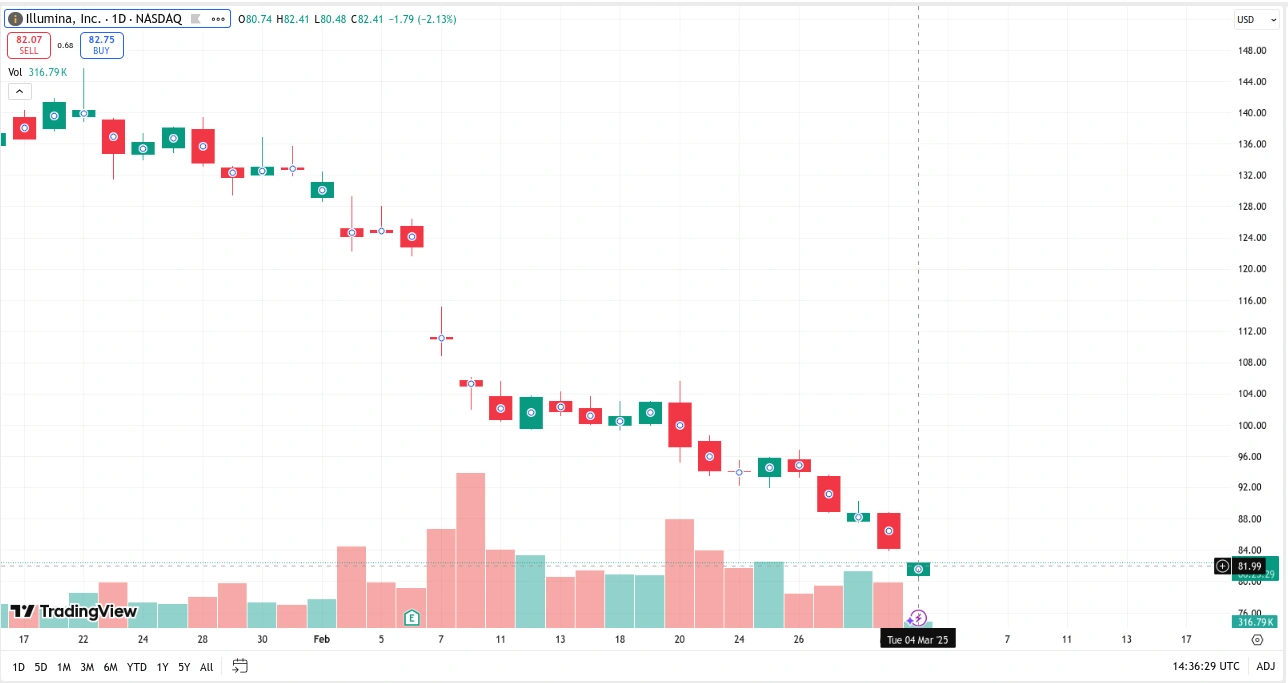Key moments
- China has banned imports of genetic sequencers from Illumina, a U.S. medical equipment maker, in response to increased U.S. tariffs.
- Illumina’s business in Greater China has already been under pressure from stiff competition, with sales declining nearly 20% last year.
- The ban is part of a series of retaliatory measures by China against U.S. tariffs, highlighting the growing geopolitical tensions.
Shares of Biotech Company Fell 4.4% After China Said it Would Ban Imports of Illumina’s Gene Sequencers
Illumina’s stock dropped 4.4% to $81.81 in U.S. premarket trading, as the company faces mounting challenges in China. Already grappling with intense competition, Illumina saw sales in Greater China decline by nearly 20% to $308 million last year. Now, China has imposed a ban on imports of Illumina’s genetic sequencers, coinciding with the implementation of President Trump’s additional 10% tariff on Chinese goods.
This import ban, effective March 4th, is part of China’s retaliatory measures against the U.S. tariffs and follows Illumina’s inclusion on Beijing’s “unreliable entity” list in February. China represents approximately 7% of Illumina’s total sales. Genetic sequencers, essential for DNA and RNA sequencing, play a crucial role in genetic research and diagnostic applications.

China’s commerce ministry stated that Illumina had disrupted normal business transactions with Chinese entities and implemented discriminatory practices. In response to Reuters’ inquiries, Illumina asserted its commitment to serving Chinese customers and adhering to the Ministry of Commerce’s latest guidelines. The company also indicated it is evaluating the announcement to fully understand its impact on Chinese operations.
While Beijing avoided targeting major U.S. consumer brands, as it did in response to the February 4th tariffs, Illumina stands out as the most prominent company affected by China’s recent actions.
Illumina has faced increasing scrutiny from Beijing, particularly after two of its Chinese competitors, MGI and BGI, were named in a U.S. bill aimed at restricting business with certain biotech firms on national security grounds. Both MGI and BGI have denied these allegations.





